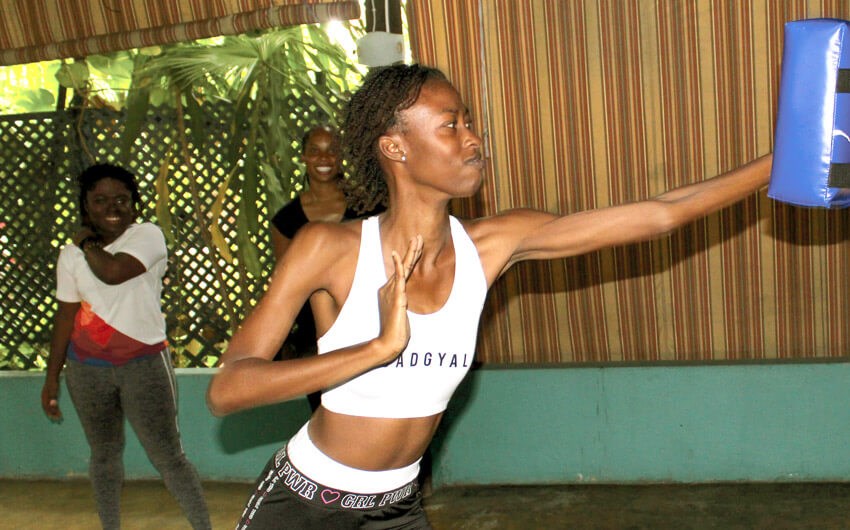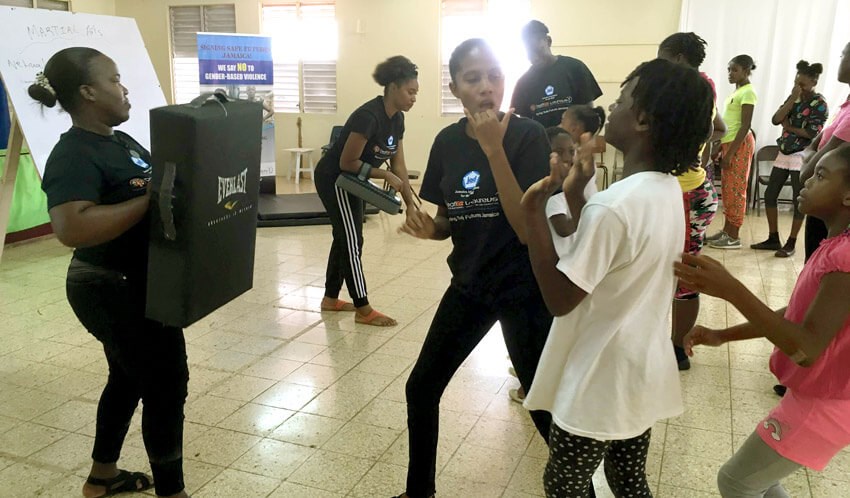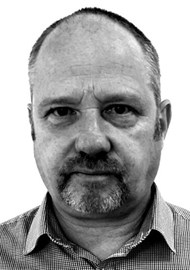Stigma and misconceptions about deafness are serious impediments for many deaf people to realise rights and potential in some of the most challenging situations globally.
Around 430 million people are estimated to live with moderate or higher levels of hearing loss globally and require rehabilitation services* [1]. The Lancet review places deafness as the third largest disabling condition globally, yet, it is the least resourced and is greatly misunderstood worldwide [2].
DeafKidz International is the global leader working to respond to the safeguarding and protection needs of deaf** children in low-resource and complex humanitarian settings and fragile states. In April 2020, DeafKidz International joined forces with Sound Seekers and the merged entity is now ‘DeafKidz International’. With safeguarding at the heart of all its work, the combined DeafKidz International aims to respond comprehensively to the protection, health, wellbeing and access to education needs of deaf children, young people and adults worldwide.
Our experience shows that the significant numbers with hearing loss are only part of the story; there is a darker side often not reported, or ignored - one of stigma, isolation, grinding poverty, abuse and exploitation. Decision makers and governments need to urgently take deafness seriously, placing more resources into developing expertise and infrastructure to support children and families. As many infants and children with some level of deafness live in low-resource and complex settings with no or limited access to support, what should be done to ensure such communities’ access to vital information, support and rights for their children?
“There is a darker side often not reported, or ignored – one of stigma, isolation, grinding poverty, abuse and exploitation”
Issues and solutions in low-resource settings
The situation is complex. Few children are formally diagnosed as deaf and remain unable to access communication and language, wrongly viewed as ‘stupid’ and ‘slow’. Seen as an economic imposition and in some cultures as a result of a ‘curse’, many are abandoned by their families – who simply cannot communicate with them. Lacking the means to self-advocate and self-represent, deaf children struggle to access health, education, social welfare and criminal justice services, all of which constitute fundamental human rights. This increases their risk and vulnerability to physical, sexual, or emotional abuse and neglect.
Often emphasis and hope is placed on assistive devices, such as hearing aids and cochlear implants, to enhance hearing and, in some instances, on ‘fixing’ deafness, with parents seeking ‘magic cures’ to help their children hear. There is a stigma around use of sign language, with many feeling that it would prevent their child from an education and living a ‘normal’ life. Sadly, often neither option exists in many low- and middle-income countries and where it does, accessing poor quality health and educational services for deaf children is far more detrimental to the child’s development. Parents’ hopes and expectations are often crushed, with deaf children further isolated.
Many people pose as qualified audiologists and charge extortionate rates for tests with questionable techniques and results; parents who are able to afford are mis-sold cochlear implants and hearing aids as instant fixes, with no aftercare and support. Many children born deaf are fitted with cochlear implants far too late in life for them to be effective and are often not provided any specialised support. Many have broken devices, and are unable to get them fixed. The situation is as bleak in deaf schools. Many teachers desperate to support their students aren’t trained in sign language and, in some countries, there is no formal sign language. For any parent of a deaf child, it’s an impossible nightmare to navigate and easy to get led down a dead end, with many children still unable to acquire any form of communication.
“The programme trains and empowers young deaf women to be coaches who disseminate safeguarding and protection messaging to deaf girls through dance and martial arts workshops”
DeafKidz International is currently piloting a pathway of care in rural Pakistan, including hearing screening, advanced audiology testing, management and follow-up support: communication (whether spoken or sign language); referral to ENT; and parenting and safeguarding support. From our pilot, it’s clear that simply providing hearing healthcare is not sufficient, and much work is needed at local and grassroots level to ensure parents, children and the community understand deafness to build trust and bust myths and misconceptions.
We are fortunate to be partnering with a Pakistani organisation called Deaf Reach who have over 20 years of experience in providing deaf education within the country, teaching their students to read, write and communicate in Urdu, English and Pakistani Sign Language (PSL) with impressive results. They have developed vocabulary and apps for PSL, and influenced and driven change at government level to improve deaf rights.
Deaf Reach is unique to Pakistan, but provides a model of an effective approach to enabling access to communication and education that could be emulated in other settings.
Abuse of deaf children in low-resource settings
Research in the US suggests that one in four culturally deaf girls has experienced sexual abuse [3]. Our experience is that in low-resource settings, the prevalence of sexual abuse is even higher. Criminal justice and social welfare capabilities are often inaccessible; with almost no sign language interpreters trained in the language, terminology and semantics of abuse. This makes for a challenging situation where child protection agencies have failed to respond to the safeguarding and protection needs of deaf children.
“DeafKidz International is committed to addressing these inequalities and ensuring no deaf girl or young woman is left behind”

The Signing Safe Futures! programme trains and empowers young
deaf women through dance and martial arts workshops.

Girls training in martial arts as part of the Signing Safe Futures! programme.
However, through the provisions of the sustainable development goals (SDGs), work is underway to empower and resource deaf children to increase their self-advocacy and resilience. The earlier they acquire the means to reduce their vulnerability to abuse, the better. An example is the ‘Signing Safe Futures!’ programme implemented in Jamaica by DeafKidz International in partnership with the Jamaican Association for the Deaf (funded by the Laureus Sport for Good Foundation). The programme trains and empowers young deaf women to be coaches who disseminate safeguarding and protection messaging to deaf girls through dance and martial arts workshops. Gender based violence (GBV) is a sensitive subject, which is universally under-reported and more so for those who lack the language or vocabulary to disclose. Survivors of GBV often feel shame and in a number of the cultures within which we work, it is not uncommon for women to be blamed for their own rape. Clinical, social welfare and criminal justice practitioners lack deaf awareness and deaf girls and young women fail to access the support they require.
DeafKidz International is committed to addressing these inequalities and ensuring no deaf girl or young woman is left behind.
For information on DeafKidz International and its work, visit: www.deafkidzinternational.org
* Moderate and higher levels of hearing loss are 35dB and greater in the better hearing ear as recorded in audiometric testing.
** DeafKidz International uses ‘deaf’ to describe people with all forms and levels of hearing loss and using different modes of communication.
References
1. World Health Organization. World Report on Hearing. Geneva, Switzerland. 2021.
www.who.int/publications/i/item/
world-report-on-hearing
Last accessed April 2021.
2. Wilson BS, Tucci DL, O’Donoghue GM, et al. A Lancet Commission to address the global burden of hearing loss. The Lancet 2019;393(10186):P2106-8.
3. Sullivan PM, McCay V, Scanlan JM. Sexual abuse of deaf youth. American Annals of the Deaf 1987;132(4):256-62.
When Signing Safe Futures! work commenced, Keshana was engaged in an abusive relationship with her common–law husband, experiencing both physical and verbal abuse. “He wanted to control me. I couldn’t have friends. He just wanted me there in the house to control me…He would smash my TV and phone and physically abuse me.” Keshana quickly realised the numerous benefits of the Signing Safe Futures! Training programme: “When I joined and saw the things that we were learning, I was like yes!...this can help me”. Empowered and strengthened to realise that the relationship she was in was destructive and unsafe, Keshana decided that she would move out. “The last time he tried to hit me I used one of the techniques I learnt in the martial arts classes to defend myself. He was shocked and stopped the abuse immediately. He realised that I was powerful and never touched me again. The next day, I just left him, I packed my things and told him I was leaving…he didn’t try and stop me.”
Keshana’s story is typical of the many deaf girls and women who experience GBV worldwide. As a Coach and leader within the deaf community, Keshana has encouraged other deaf women and girls to join the Signing Safe Futures! programme reminding them that they have a right to stay safe and stand up to abuse.






